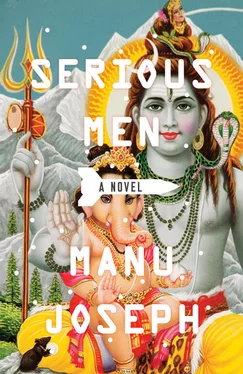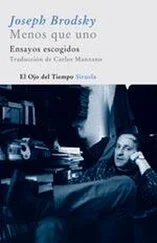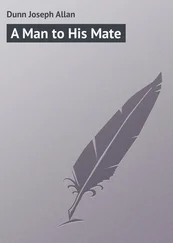Ayyan latched the door and sat on the floor beside his son. ‘Adi, now I want you to listen to me carefully.’
The boy was trying to pull the monitor by its plastic hood.
‘Adi, sit down and look at me,’ Ayyan said sternly.
Adi sat on the floor and looked at his father.
‘It was fun, wasn’t it?’ Ayyan said.
‘It was fun,’ Adi said.
‘Now, it’s over. I know I’ve said this before, but now it’s definitely over,’ Ayyan said.
‘OK,’ the boy said.
‘You’re not going to take the exam. You’re not smart enough for that. You and I know that.’
‘OK,’ Adi said.
‘Do you understand?’
‘Yes.’
‘All this will not happen again, Adi. Now the game is over. You’ll be like other boys and it’ll be a lot of fun too.’
‘I am not like other boys. They call me deaf.’
‘If anyone calls you deaf, tell him, “But I can hear you, but I can hear you.” Keep saying it till he stops talking. OK?’
That made Adi smile. ‘I can hear you, I can hear you, I can hear you,’ he said.
‘If he still calls you deaf,’ Ayyan said, ‘tell him, “But I heard your mother fart, but I heard your mother fart”.’ That made Adi roll on the floor laughing. He went breathless for a second and only the fear of dying made him stop laughing.
There was a knock at the door. When Ayyan opened it he found Oja caught in a moment of self-important haste. She was standing at the doorway, about to enter but hurriedly imparting final instructions to four women who stood meekly in the corridor.
‘People can’t keep throwing garbage from their windows,’ Oja was saying. ‘We have to introduce fines to control this. Or, we should collect the garbage and throw it back into the house of the person who has flung it. If we don’t take care of our chawl, who will?’
Then she walked into her house and shut the door. Ayyan noticed that she was holding a wedge of lemon. She went straight to Adi and squeezed it on his head. He tried to run but she held him tight and said a quick prayer. And she ran her palms over his cheeks and cracked her knuckles on her ears.
‘Evil eyes, all around,’ she said.
THE LIGHTS DIMMED and a hush fell over the auditorium. Every seat was taken. There were people sitting on the edges of the aisles. The blood-red curtain went up in somnolent folds and revealed seven empty chairs on the stage. ‘There is a seat, grab it,’ someone in the aisle said, and the hall erupted in laughter. A banner on the black backdrop of the stage said ‘Indian Search For Extraterrestrial Intelligence’. Ayyan was standing at the foot of a short flight of wooden steps that led to the stage. His hands were folded and he surveyed the audience. He had decided to disregard his assignment, which was to ensure that the special dignitaries in the front row — mostly scientists, bureaucrats, one failed actor and other friends of Nambodri — were given a steady supply of whatever they wanted.
A girl who was preoccupied with her own glamour arrived at the podium in a dark-blue sari that fluttered in the gale of the ceiling fan. She looked at the audience with one eye, the other was hidden behind her cascading hair.
‘A mysterious character of UFOs is that they are sighted only in the First World,’ she said, ‘and no alien conquest of Earth begins until the Mayor of New York holds an emergency press conference. When Mars attacks, it attacks America.’
She then asked very seriously, with a faint tilt of her head that partially exposed her other eye, ‘Is this because of an intergalactic understanding of the balance of power on our planet?’ She smiled modestly when she heard some chuckles. ‘Whatever the reasons are, “we are not alone” is a western anthem. But today, we present the first attempt of our country to formally understand what extraterrestrial life is all about.’ She invited seven men to the stage.
The first was a very old man whom Ayyan had to help up the stairs. He had a thick mop of furious silver hair, bushy bristles peeped through his nostrils and ears, and his hands were trembling as Ayyan held them. Then came a mountainous white man. There always had to be a white man in such a gathering. ‘The whites are the Brahmins of the Brahmins,’ Ayyan often told his wife. And every year, they grew taller. Jana Nambodri followed, in a Chinese-collar black shirt and black trousers, and with four of his satellites.
Ayyan stood in his dark corner and listened to these men as they heralded, as they always had for centuries, ‘A new dawn’. Nambodri spoke about how the array of radio telescopes called the Giant Ear was finally liberated. He announced, in the midst of a great applause, that the Ear would now scan the skies for signals from advanced civilizations.
The white man came to the podium, and joined his palms together. It was his first visit. ‘Namaste,’ he said. He welcomed India to ‘mankind’s search for company’. Later, other radio astronomers spoke about the importance of youth in Seti. After them came the old man. He was introduced by the announcer as a retired scientist from Bangalore. He arrived feebly at the podium and was startled by the squeal of the mike. When he recovered, he began to talk about the greatness of ancient Indians. The crowd applauded every compliment he gave their imagined ancestors. Ayyan laughed. Yes, yes, Indians were the oldest civilization on Earth, the greatest, the best. And only Indians had culture. Others were all dumb nomads and whores.
Ayyan detested this moronic pride more than anything else about the country. Those flared nostrils, those dreamy eyes that people made when they said that they were once a spectacular race. How heaps of gems were sold on the streets, like berries. How ancient Brahmins had calculated the distance between the Earth and the Moon long before the whites; how ayurveda had figured everything about the human body long before Hippocrates; how Kerala’s mathematicians had discovered something close to the heliocentric theory long before Copernicus. In this delusional heritage of the country, his own ancestors were never included. Except as gory black demons in the fables of valiant fair men.
The old man now began to speak about the mysteries of the cow, and the wisdom of Indians in granting the creature an enduring holiness. He attributed his longevity to the consumption of a glass of cow’s urine every morning. That brought about a polite silence. But Ayyan saw some aged people in the audience nod wisely.
‘Ghee, it has been proved, is good for the heart,’ the man said. ‘And in Jaipur, scientists have proved that a paste made out of cow dung, when spread on the walls and roofs, blocks nuclear radiation.’ He cited the work of an astrophysicist who had investigated the effects of cow slaughter. ‘The cries of the cows go down to the core of the Earth through Einsteinian pain waves and cause seismic activity, especially after Muslim festivals when there is a mass slaughter of cattle. That’s why, a few days after every Muslim festival, somewhere in the world there is always an earthquake.’
Finally, he came to the point: ‘How did the ancient Indians know so much? How did they know about the secrets of the cow, about the human anatomy, and the distances between heavenly bodies? I believe, very early in the life of the Indian civilization, in the vedic age, there was an alien contact.’ Mahabharata’s great war, with its flying machines and mystical missiles, he said, was fought using extraterrestrial technologies that were later mistaken as the hallucinations of poets. ‘Sometime in the great past of our country, there was a technology transfer from an advanced civilization. Our gods are, in reality, artistic representations of extraterrestrial visitors. I really don’t care what you think, but I know that Krishna was an alien.’
Читать дальше












